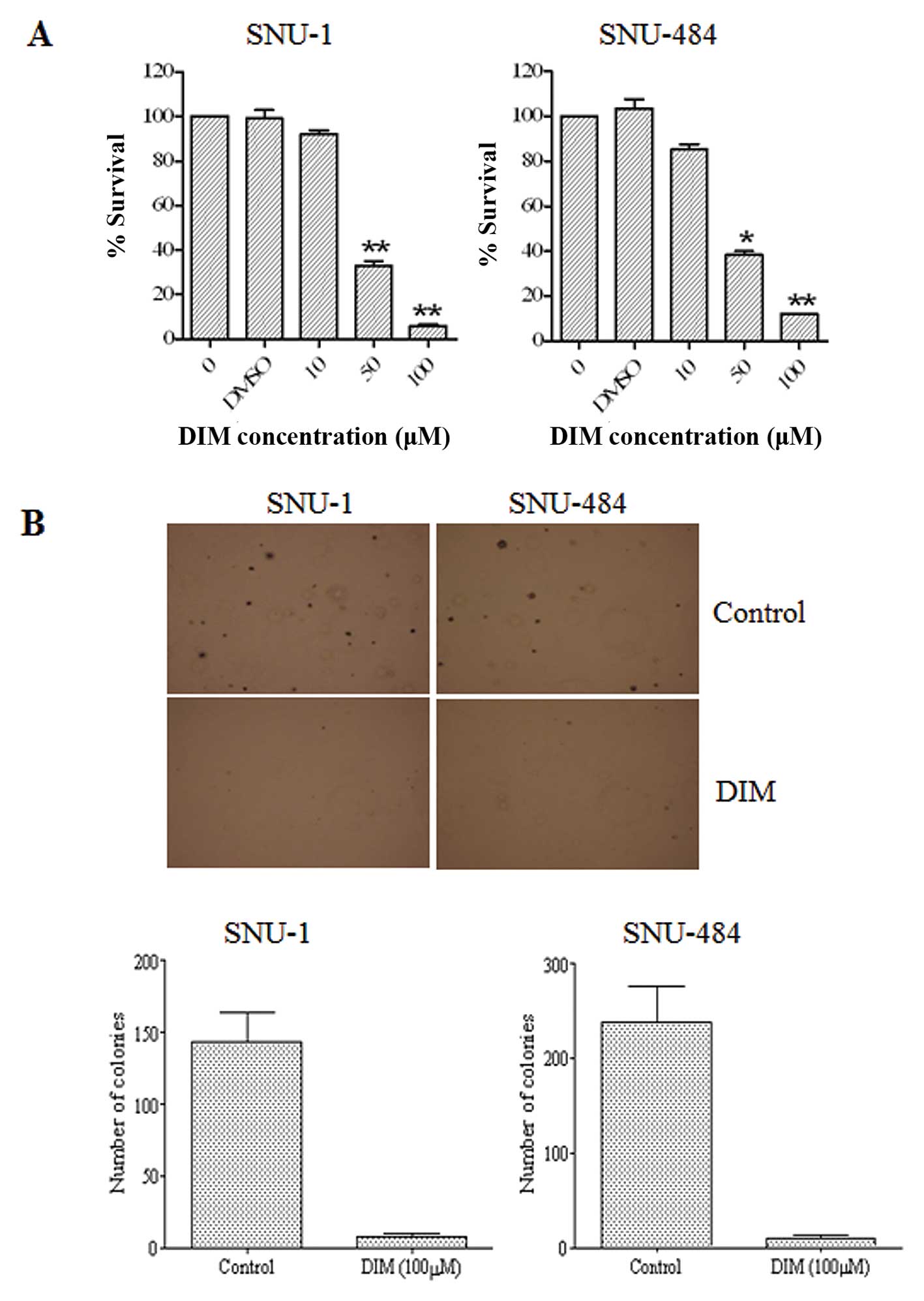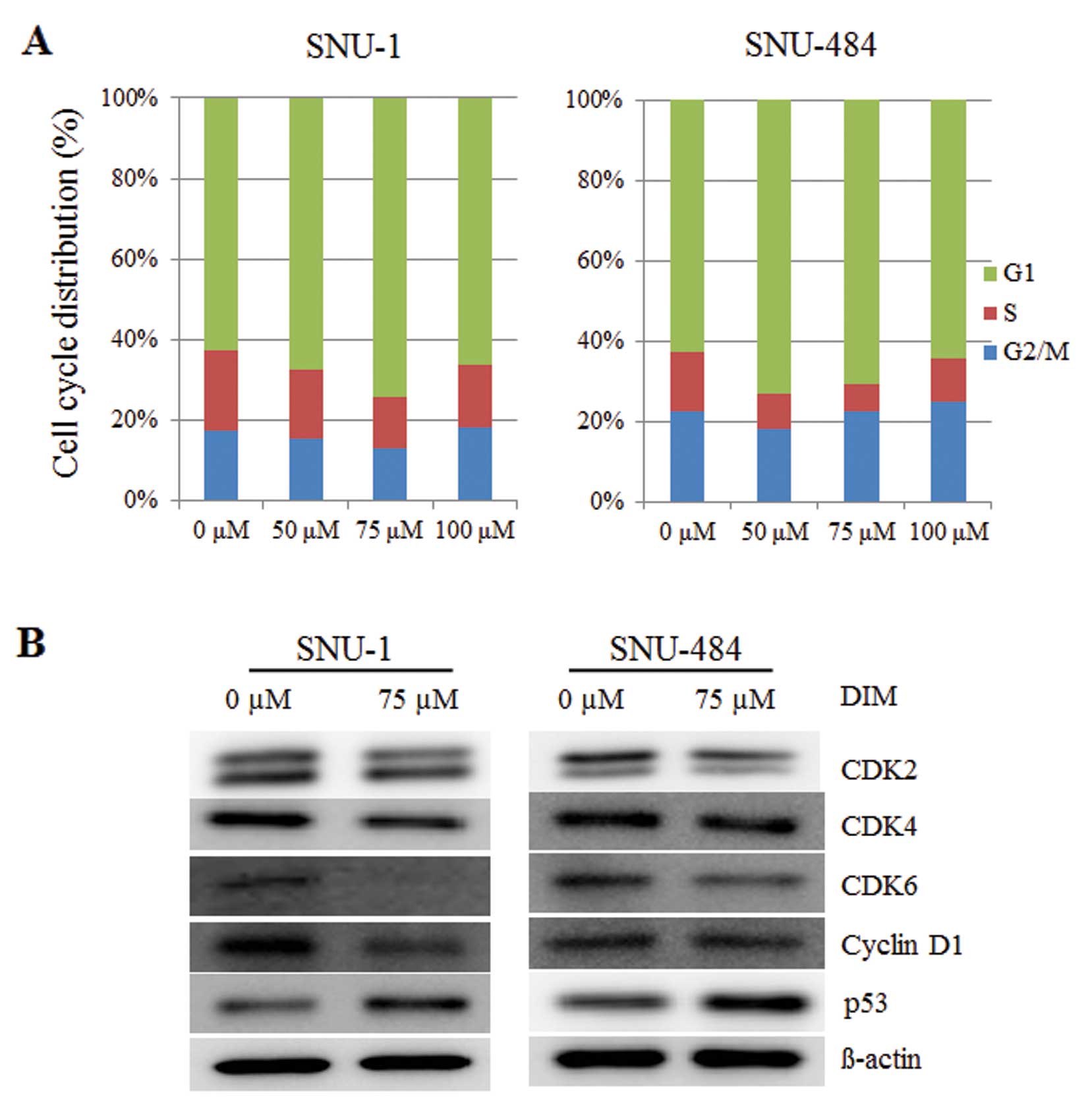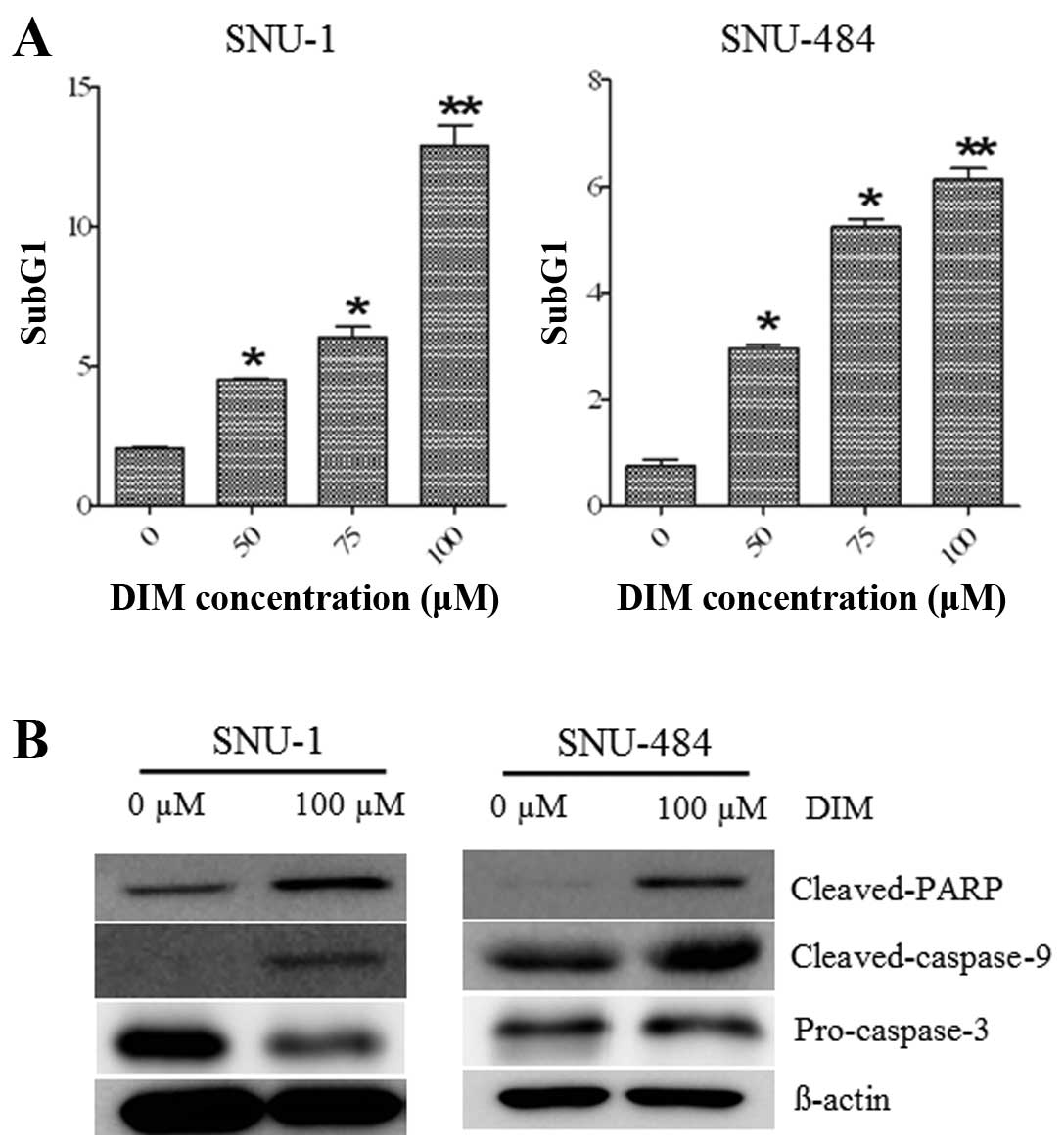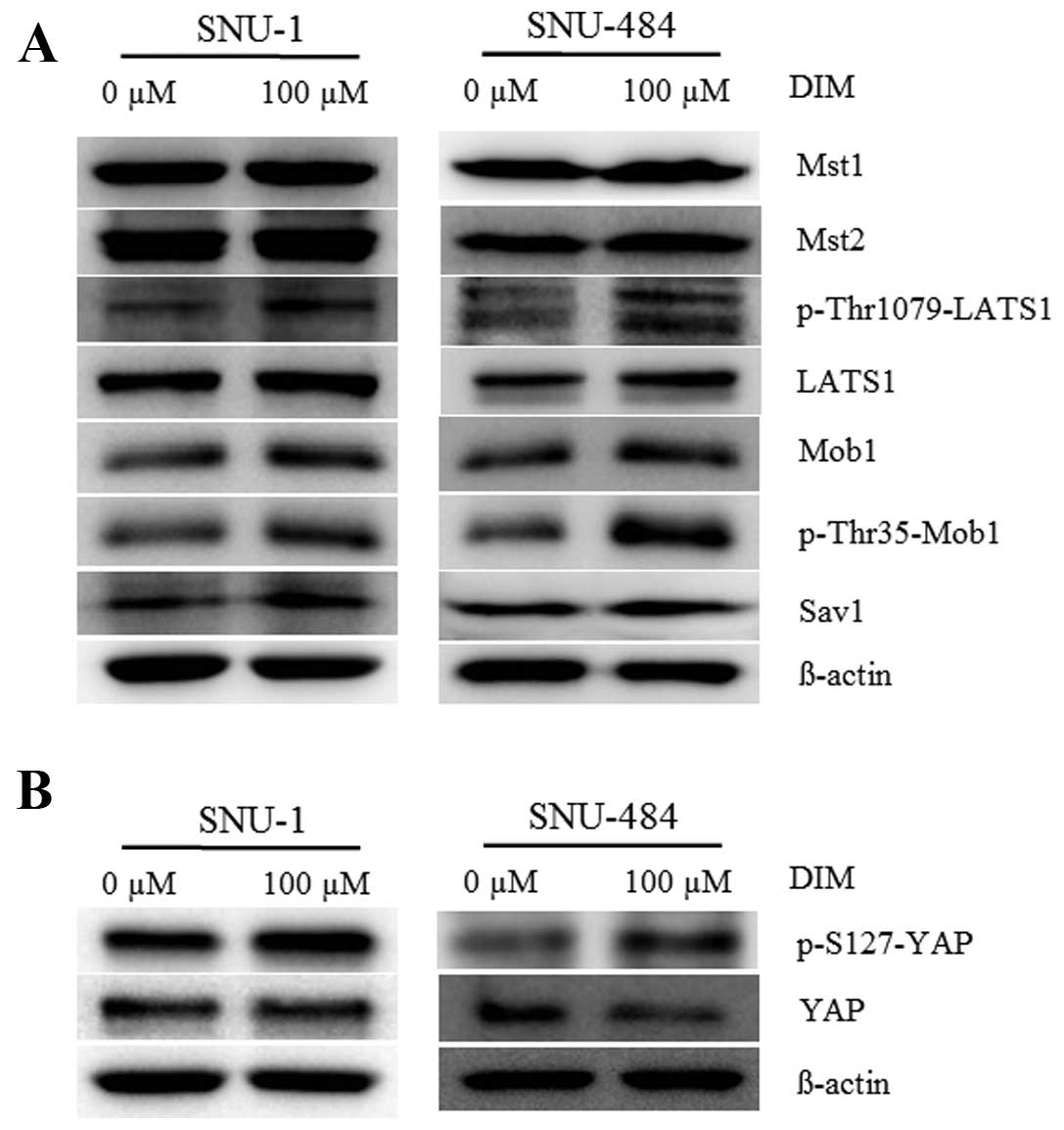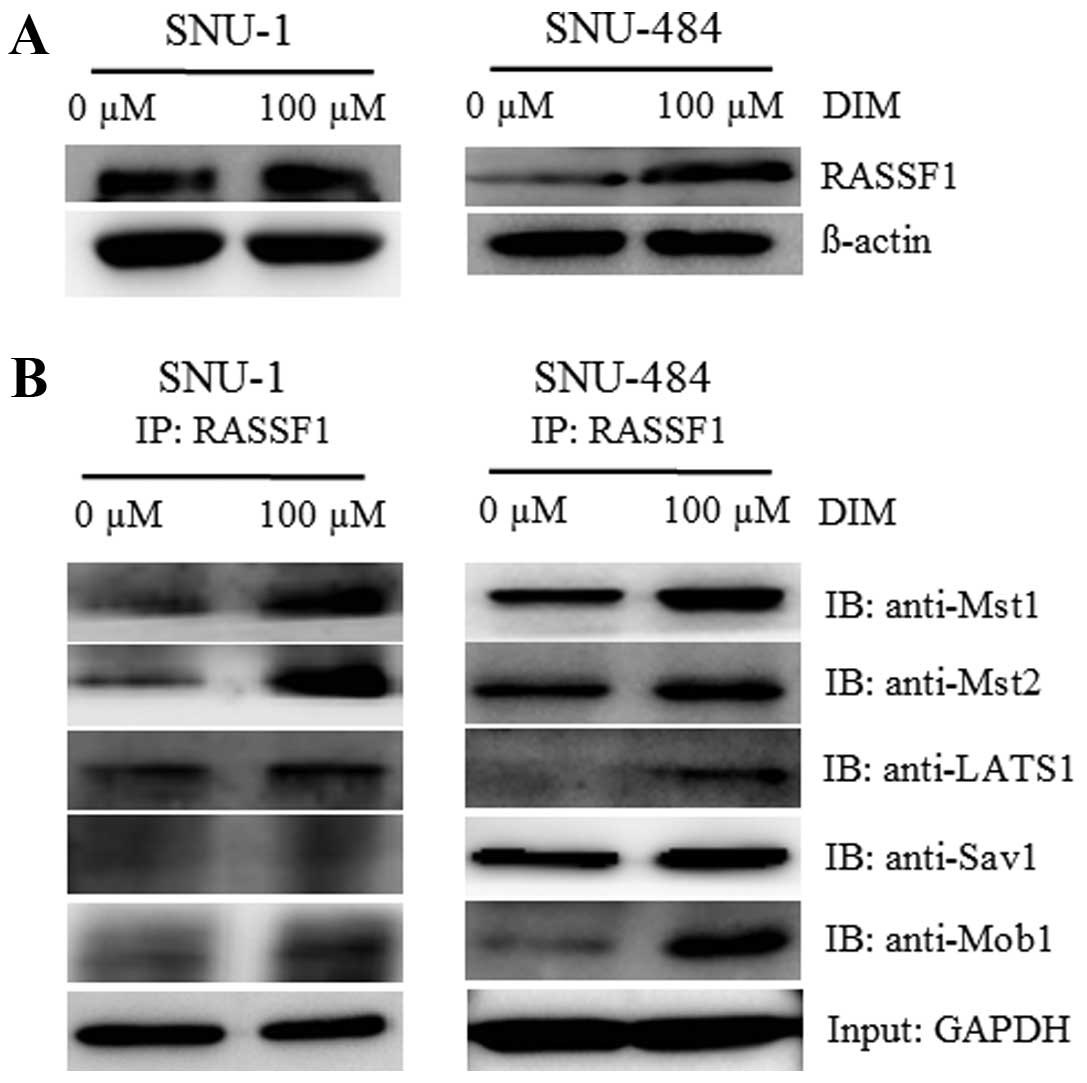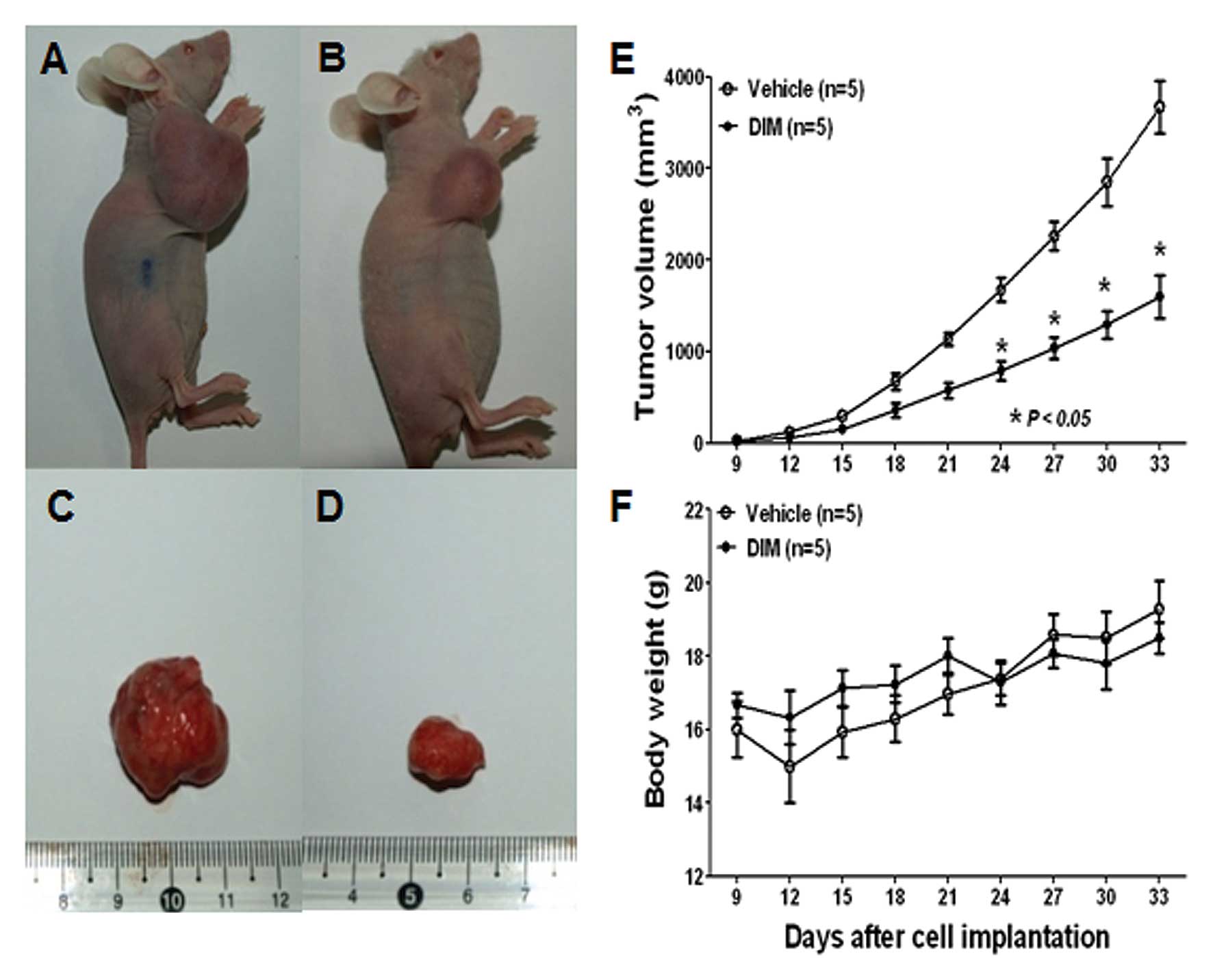|
1
|
Kong D, Banerjee S, Huang W, et al:
Mammalian target of rapamycin repression by 3,3′-diindolylmethane
inhibits invasion and angiogenesis in platelet-derived growth
factor-D-overexpressing PC3 cells. Cancer Res. 68:1927–1934.
2008.
|
|
2
|
Shin HR, Carlos MC and Varghese C: Cancer
control in the Asia Pacific region: current status and concerns.
Jpn J Clin Oncol. 42:867–881. 2012. View Article : Google Scholar : PubMed/NCBI
|
|
3
|
Parkin DM, Bray F, Ferlay J and Pisani P:
Global cancer statistics, 2002. CA Cancer J Clin. 55:74–108. 2005.
View Article : Google Scholar
|
|
4
|
Tan IB, Ng I, Tai WM and Tan P:
Understanding the genetic basis of gastric cancer: recent advances.
Expert Rev Gastroenterol Hepatol. 6:335–341. 2012. View Article : Google Scholar : PubMed/NCBI
|
|
5
|
Hoffmann W: Stem cells, self-renewal and
cancer of the gastric epithelium. Curr Med Chem. 19:5975–5983.
2012. View Article : Google Scholar : PubMed/NCBI
|
|
6
|
Cho JY, Lim JY, Cheong JH, et al: Gene
expression signature-based prognostic risk score in gastric cancer.
Clin Cancer Res. 17:1850–1857. 2011. View Article : Google Scholar : PubMed/NCBI
|
|
7
|
Hundahl SA, Phillips JL and Menck HR: The
National Cancer Data Base Report on poor survival of U.S. gastric
carcinoma patients treated with gastrectomy: Fifth Edition American
Joint Committee on Cancer staging, proximal disease, and the
‘different disease’ hypothesis. Cancer. 88:921–932. 2000.PubMed/NCBI
|
|
8
|
Kovoor PA and Hwang J: Treatment of
resectable gastric cancer: current standards of care. Exp Rev
Anticancer Ther. 9:135–142. 2009. View Article : Google Scholar : PubMed/NCBI
|
|
9
|
Rausei S, Dionigi G, Rovera F, et al: A
decade in gastric cancer curative surgery: evidence of progress
(1999–2009). World J Gastrointest Surg. 4:45–54. 2012.PubMed/NCBI
|
|
10
|
Harvey KF, Pfleger CM and Hariharan IK:
The Drosophila Mst ortholog, hippo, restricts growth
and cell proliferation and promotes apoptosis. Cell. 114:457–467.
2003.
|
|
11
|
Harvey K and Tapon N: The
Salvador-Warts-Hippo pathway - an emerging tumour-suppressor
network. Nat Rev Cancer. 7:182–191. 2007. View Article : Google Scholar : PubMed/NCBI
|
|
12
|
Grusche FA, Richardson HE and Harvey KF:
Upstream regulation of the hippo size control pathway. Curr Biol.
20:R574–R582. 2010. View Article : Google Scholar : PubMed/NCBI
|
|
13
|
Harvey KF and Hariharan IK: The hippo
pathway. Cold Spring Harb Perspect Biol. 4:a0112882012. View Article : Google Scholar : PubMed/NCBI
|
|
14
|
Zeng Q and Hong W: The emerging role of
the hippo pathway in cell contact inhibition, organ size control,
and cancer development in mammals. Cancer Cell. 13:188–192. 2008.
View Article : Google Scholar : PubMed/NCBI
|
|
15
|
Edgar BA: From cell structure to
transcription: Hippo forges a new path. Cell. 124:267–273. 2006.
View Article : Google Scholar : PubMed/NCBI
|
|
16
|
Zhao B, Li L, Lei Q and Guan KL: The
Hippo-YAP pathway in organ size control and tumorigenesis: an
updated version. Genes Dev. 24:862–874. 2010. View Article : Google Scholar : PubMed/NCBI
|
|
17
|
Xu ZP, Zhu JS, Zhang Q and Wang XY: A
breakdown of the Hippo pathway in gastric cancer.
Hepatogastroenterology. 58:1611–1617. 2011.PubMed/NCBI
|
|
18
|
Zhou Z, Zhu JS, Xu ZP and Zhang Q:
Lentiviral vector-mediated siRNA knockdown of the YAP gene inhibits
growth and induces apoptosis in the SGC7901 gastriccancer cell
line. Mol Med Rep. 4:1075–1082. 2011.PubMed/NCBI
|
|
19
|
Min B, Kim MK, Zhang JW, et al:
Identification of RUNX3 as a component of the MST/Hpo signaling
pathway. J Cell Physiol. 227:839–849. 2012. View Article : Google Scholar : PubMed/NCBI
|
|
20
|
Yoshihama Y, Izumisawa Y, Akimoto K, et
al: High expression of KIBRA in low atypical protein kinase
C-expressing gastric cancer correlates with lymphatic invasion and
poor prognosis. Cancer Sci. 104:259–265. 2013. View Article : Google Scholar : PubMed/NCBI
|
|
21
|
Song M, Cheong JH and Kim H, Noh SH and
Kim H: Nuclear expression of Yes-associated protein 1 correlates
with poor prognosis in intestinal type gastric cancer. Anticancer
Res. 32:3827–3834. 2012.PubMed/NCBI
|
|
22
|
Lam-Himlin DM, Daniels JA, Gayyed MF, et
al: The hippo pathway in human upper gastrointestinal dysplasia and
carcinoma: a novel oncogenic pathway. Int J Gastrointest Cancer.
37:103–109. 2006.PubMed/NCBI
|
|
23
|
Seymour JD, Calle EE, Flagg EW, Coates RJ,
Ford ES and Thun MJ; American Cancer Society. Diet Quality Index as
a predictor of short-term mortality in the American Cancer Society
Cancer Prevention Study II Nutrition Cohort. Am J Epidemiol.
157:980–988. 2003. View Article : Google Scholar : PubMed/NCBI
|
|
24
|
Gao N, Cheng S, Budhraja A, et al:
3,3′-Diindolylmethane exhibits antileukemic activity in vitro and
in vivo through a Akt-dependent process. PloS One.
7:e317832012.
|
|
25
|
Grose KR and Bjeldanes LF: Oligomerization
of indole-3-carbinol in aqueous acid. Chem Res Toxicol. 5:188–193.
1992. View Article : Google Scholar : PubMed/NCBI
|
|
26
|
Keck AS and Finley JW: Cruciferous
vegetables: cancer protective mechanisms of glucosinolate
hydrolysis products and selenium. Integr Cancer Ther. 3:5–12. 2004.
View Article : Google Scholar : PubMed/NCBI
|
|
27
|
Banerjee S, Wang Z, Kong D and Sarkar FH:
3,3′-Diindolyl-methane enhances chemosensitivity of multiple
chemotherapeutic agents in pancreatic cancer. Cancer Res.
69:5592–5600. 2009.
|
|
28
|
Kim SJ, Lee JS and Kim SM:
3,3′-Diindolylmethane suppresses growth of human esophageal
squamous cancer cells by G1 cell cycle arrest. Oncol Rep.
27:1669–1673. 2012.
|
|
29
|
Ali S, Banerjee S, Ahmad A, El-Rayes BF,
Philip PA and Sarkar FH: Apoptosis-inducing effect of erlotinib is
potentiated by 3,3′-diindolylmethane in vitro and in vivo using an
orthotopic model of pancreatic cancer. Mol Cancer Ther.
7:1708–1719. 2008.PubMed/NCBI
|
|
30
|
Chinnakannu K, Chen D, Li Y, et al: Cell
cycle-dependent effects of 3,3′-diindolylmethane on proliferation
and apoptosis of prostate cancer cells. J Cell Physiol. 219:94–99.
2009.
|
|
31
|
Bhuiyan MM, Li Y, Banerjee S, et al:
Down-regulation of androgen receptor by 3,3′-diindolylmethane
contributes to inhibition of cell proliferation and induction of
apoptosis in both hormone-sensitive LNCaP and insensitive C4-2B
prostate cancer cells. Cancer Res. 66:10064–10072. 2006.
|
|
32
|
Li Y, Chinni SR and Sarkar FH: Selective
growth regulatory and pro-apoptotic effects of DIM is mediated by
AKT and NF-kappaB pathways in prostate cancer cells. Front Biosci.
10:236–243. 2005. View
Article : Google Scholar : PubMed/NCBI
|
|
33
|
Nachshon-Kedmi M, Fares FA and Yannai S:
Therapeutic activity of 3,3′-diindolylmethane on prostate cancer in
an in vivo model. Prostate. 61:153–160. 2004.
|
|
34
|
Rahman KW and Sarkar FH: Inhibition of
nuclear translocation of nuclear factor-κB contributes to
3,3′-diindolylmethane-induced apoptosis in breast cancer cells.
Cancer Res. 65:364–371. 2005.
|
|
35
|
Abdelrahim M, Newman K, Vanderlaag K,
Samudio I and Safe S: 3,3′-diindolylmethane (DIM) and its
derivatives induce apoptosis in pancreatic cancer cells through
endoplasmic reticulum stress-dependent upregulation of DR5.
Carcinogenesis. 27:717–728. 2006.
|
|
36
|
Carter TH, Liu K, Ralph W Jr, et al:
Diindolylmethane alters gene expression in human keratinocytes in
vitro. J Nutr. 132:3314–3324. 2002.PubMed/NCBI
|
|
37
|
Azmi AS, Ahmad A, Banerjee S, Rangnekar
VM, Mohammad RM and Sarkar FH: Chemoprevention of pancreatic
cancer: characterization of Par-4 and its modulation by 3,3′
diindolylmethane (DIM). Pharm Res. 25:2117–2124. 2008.PubMed/NCBI
|
|
38
|
Kim SJ, Chung MJ, Kim JS, et al:
Deciphering the role of paclitaxel in the SKGT4 human esophageal
adenocarcinoma cell line. Int J Oncol. 39:1587–1591.
2011.PubMed/NCBI
|
|
39
|
Dammann R, Li C, Yoon JH, Chin PL, Bates S
and Pfeifer GP: Epigenetic inactivation of a RAS association domain
family protein from the lung tumour suppressor locus 3p21.3. Nat
Genet. 25:315–319. 2000. View
Article : Google Scholar : PubMed/NCBI
|
|
40
|
Dammann R, Schagdarsurengin U, Seidel C,
et al: The tumor suppressor RASSF1A in human carcinogenesis: an
update. Histol Histopathol. 20:645–663. 2005.PubMed/NCBI
|
|
41
|
Guo C, Zhang X and Pfeifer GP: The tumor
suppressor RASSF1A prevents dephosphorylation of the mammalian
STE20-like kinases MST1 and MST2. J Biol Chem. 286:6253–6261. 2011.
View Article : Google Scholar : PubMed/NCBI
|
|
42
|
Chen Y, Xu J, Jhala N, et al: Fas-mediated
apoptosis in cholangiocarcinoma cells is enhanced by
3,3′-diindolylmethane through inhibition of AKT signaling and
FLICE-like inhibitory protein. Am J Pathol. 169:1833–1842.
2006.PubMed/NCBI
|
|
43
|
Saucedo LJ and Edgar BA: Filling out the
Hippo pathway. Nat Rev Mol Cell Biol. 8:613–621. 2007. View Article : Google Scholar : PubMed/NCBI
|
|
44
|
Burbee DG, Forgacs E, Zöchbauer-Müller S,
et al: Epigenetic inactivation of RASSF1A in lung and breast
cancers and malignant phenotype suppression. J Natl Cancer Inst.
93:691–699. 2001. View Article : Google Scholar : PubMed/NCBI
|
|
45
|
Agathanggelou A, Cooper WN and Latif F:
Role of the Ras-association domain family 1 tumor suppressor gene
in human cancers. Cancer Res. 65:3497–3508. 2005. View Article : Google Scholar : PubMed/NCBI
|
|
46
|
Tommasi S, Dammann R, Zhang Z, et al:
Tumor susceptibility of Rassf1a knockout mice. Cancer Res.
65:92–98. 2005.PubMed/NCBI
|
|
47
|
Vichalkovski A, Gresko E, Cornils H,
Hergovich A, Schmitz D and Hemmings BA: NDR kinase is activated by
RASSF1A/MST1 in response to Fas receptor stimulation and promotes
apoptosis. Curr Biol. 18:1889–1895. 2008. View Article : Google Scholar : PubMed/NCBI
|
|
48
|
Guo C, Tommasi S, Liu L, Yee JK, Dammann R
and Pfeifer GP: RASSF1A is part of a complex similar to the
Drosophila Hippo/Salvador/Lats tumor-suppressor network.
Curr Biol. 17:700–705. 2007. View Article : Google Scholar : PubMed/NCBI
|
|
49
|
Matallanas D, Romano D, Yee K, et al:
RASSF1A elicits apoptosis through an MST2 pathway directing
proapoptotic transcription by the p73 tumor suppressor protein. Mol
Cell. 27:962–975. 2007. View Article : Google Scholar : PubMed/NCBI
|















